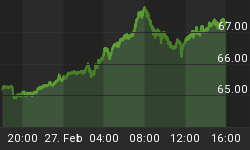Even one of the world’s most famous college dropouts, Bill Gates, believes low graduation rates represent a crisis that needs to be addressed before American drops off the education radar entirely. Each year, roughly 2 million college graduates earn bachelor’s degrees in the United States, but don’t get too excited about this number.
College Atlas survey found that 70% of Americans will study at a four-year college. However, less than two-thirds will graduate with a degree, and 30% of first-year students drop out after their first year of school.
There are quite a few reasons for dropping out, and they range from lack of preparedness to vague personal challenges; but, the most common reason is financial.
A LendEDU survey found that 55% of students struggled to find the money to pay for college and 51% dropped out of college because of financial issues.
The price of going to college has been increasing since the 1980s and has increased by more than 25% in the last decade. As a result, roughly 44 million Americans collectively owe $1.56 trillion in student loans.
That’s not to say, however, that dropping out of college means the end of education. It seems that those dropouts are trying to follow in Bill Gates’ might footsteps, though the vast majority will end up following those footsteps to a dead or much less significant end.
In the meantime, the number of students earning professional certificates and associate’s degrees is on the rise. Around 50% of undergraduate students nationwide are enrolled in certificate and associate’s degree programs, compared to the 47% of those who are enrolled in bachelor’s degree programs.
Now, the much-heralded bachelor’s degree isn’t necessarily the ladder to a larger income.
Related: Low Gold Miner Valuations Reveal Upside Potential For The Industry
A recent report by Georgetown University stresses that there is a wide range of earnings among those with associate’s degrees and professional certificates. A worker with an associate’s degree may out-earn one with a bachelor’s, and a worker with a certificate may out-earn one with an associate’s degree, depending on the field of study.
Associate degrees in health and certificates in STEM, for instance, tend to result in higher earnings than a bachelor’s in education, psychology, or social work.
“Certificate and associate’s degree programs are linked strongly to careers—about 94% of certificates and 57% of associate’s degrees are awarded in career-oriented fields. And within each award, earnings vary by field of study in a pattern similar to that found among bachelor’s degrees,” the report found.
The bigger significance, of course, is the threat these numbers pose to American universities, which have lately felt obliged to start adding more specificity through hundreds of new majors, minors and certificates.
The number of certificates offered since 2000 at public universities and colleges has doubled and at private, nonprofit institutions it has increased by nearly 40%.
In just one example of extreme specialization, universities and colleges nationwide are responding to the expansion of legalized gambling and scrambling to add programs in casino management.
Also, some new programs reported by universities and colleges include a minor in hip-hop studies, a major in sports communication with a minor in eSports. Central Michigan University has even launched a certificate program in beer fermentation.
An Italian online university sparked off what could potentially turn into a trend by offering the world’s first “Social media influencer” degree. ECampus says three years of coursework and tuition of roughly $13,000 can earn you the title of social media influencer.
Fighting for student enrollment and amending programs to attract greater numbers will likely continue in the coming years as Generation Z, now reaching college age, believes life goes on just fine without a degree, according to a recent survey by Pearson.
By Anes Alic for SafeHaven.com
More Top Reads From Safehaven.com:
















